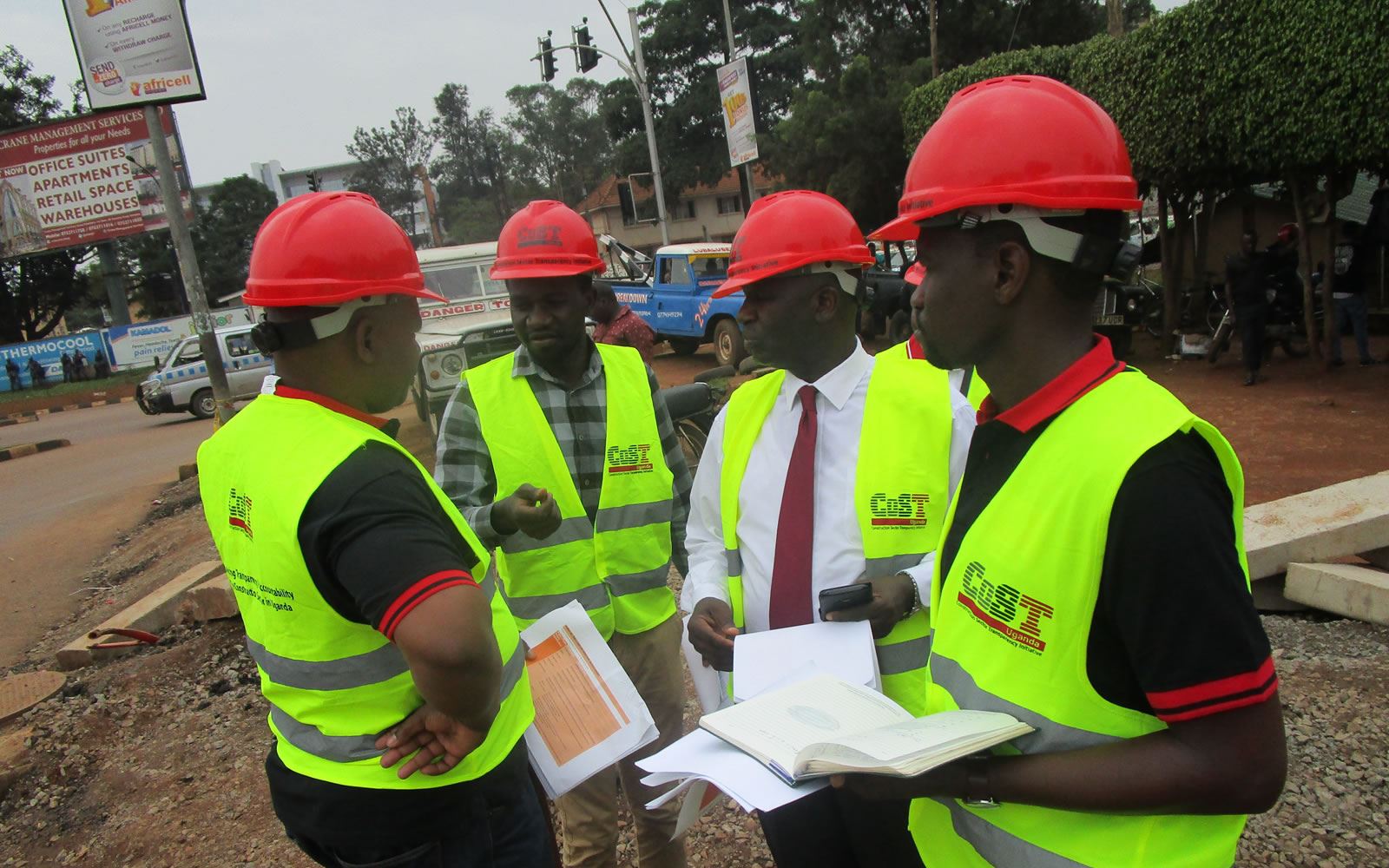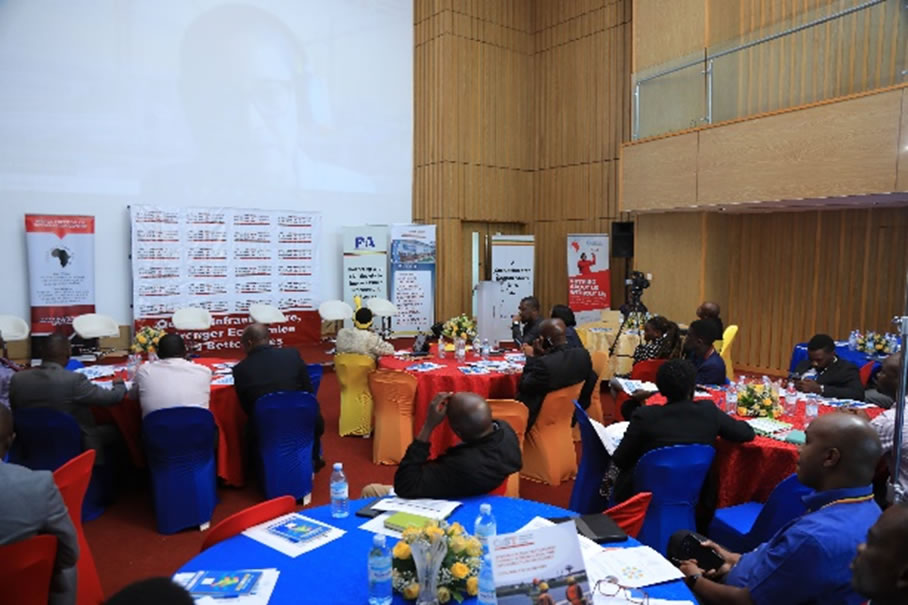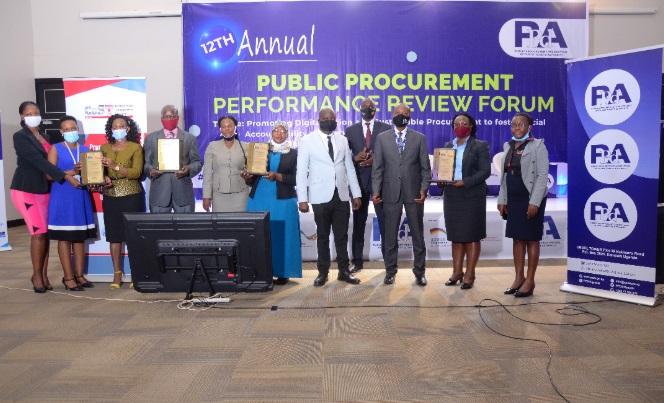
The CoST Uganda effect? 3rd Assurance Report calls for Government’s action to enhance Infrastructure Transparency;
CoST Uganda published its 3rd Assurance Report on 22nd January 2020. The 3rd Assurance Process focused on 13 projects from five (5) Procuring Entities recommended by the Public Procurement and Disposal of Public Assets Authority (PPDA), we commend PPDA for this partnership. The Assurance Process was spread through the sectors of Education, Water and Environment, Health, Energy, Roads, Buildings and Bridges.
The Procuring and Disposing Entities that participated in the 3rd Assurance process included;
- Ministry of Education and Sports (3 projects),
- Ministry of Health (4 projects),
- Ministry of Energy and Mineral Development (2 projects),
- Uganda National Roads Authority (UNRA) (2 projects).
- Ministry of Water and Environment (2 projects)
The 13 projects subjected to the CoST Assurance Process are worth Uganda shillings 246,245,037,985 Billion or USD 74 Million.
Findings, observations and comments;
- Low levels of disclosure;
- Time and cost overruns by some projects, majorly attributed to scope changes;
- Poor and in sometimes lack of evidence of procurement files.
- Poor planning and construction site management challenges.
- There is a lack of ownership of projects amongst the public and projects still termed to belong to Government.
The report further indicated that pro-active disclosure was at 43% and reactive disclosure was at 42% making the overall disclosure at 43%. Low disclosure was attributed to delays in data retrieval and refusal to disclose data by some of the procuring entities. Ministry of Education and Sports initially for instance declined to disclose information reactively but later reconsidered and granted access to records. However, this happened after the data retrieval exercise had ended and the information was not included in this report.
This engagement reveals the need for entities to appreciate the relevance of timely data disclosure to stakeholders. In the same regard, 42% of the reactive data was accessed from Ministries of Water and Environment and Ministry of Health. UNRA and Ministry of Energy declined to reactively disclose project information despite various engagements.
Although there was progressive stakeholder engagement in implementation of the Assured projects by Ministry of Water and Environment and Ministry of Health, findings revealed that for most of the projects, there was a low level of citizen and other stakeholder engagements where they are engaged. Citizens still demanded continuous and timely engagements with correct project and contract information. There was a lack of ownership of projects amongst the public and projects still termed to belong to Government.
The 3rd Assurance Process recommends that;
- Regular update of procuring entities’ websites to enhance proactive disclosure, preferably considering the CoST Infrastructure Data Standard.
- PPDA should provide guidelines on disclosure of infrastructure project and contract data preferably using the CoST IDS.
- PPDA should monitor and enforce compliance of existing disclosure standards and requirements.
- Procuring Entities should strengthen supervision of works to avoid delays in implementation.
- Contract Managers should ensure that contractors and consultants have risk matrices in order to ensure that provision is made for risk management.
- Procuring Entities should require contractors and consultants to make use of environmental management and decommissioning plans and have these documented in their progress reports.
- Contractors and Consultants should adhere to waste management plans, ensure safety of construction sites and maintenance of access roads.
- Oversight bodies such as Auditor General, PPDA, the Inter-Agency Forum, Parliament among others should monitor delivery of infrastructure projects at all levels to ensure quality and timely implementation.
- Procuring Entities should consider inclusion of women and youth in all levels of project delivery. Consultants and contractors should be required to report on gender considerations in their quarterly reports.
- Procuring Entities should consider disclosing data related to managing relationships with stakeholders in the projects’ delivery processes.
- Procuring Entities are encouraged to engage citizens to contribute towards the periodic maintenance of completed projects, this should be complemented with continuous citizen awareness meetings.
“The idea of sampling government projects for assurance is aimed at identifying good practice and issues of concern to engage stakeholders and so that for the longer term, infrastructure projects are better planned and better delivered,” said Hon. Nathan Byanyima, Chairperson of the CoST– Uganda Multi stakeholder Group. He continued, “CoST Uganda recommends that government embraces CoST core features within its legal framework to ensure the longevity of infrastructure transparency and that the key findings of the report are noted by procuring entities to further improve the sector.”
Hon. Nathan Byanyima,
Chairperson, CoST Uganda
Multi-Stakeholder Group
For more information please visit: www.cost.or.ug www.infrastructuretransparency.org, Follow us on Twitter @CoSTransparency. @CostUgChapter Email; info@cost.or.ug Tel: 0777 290 621



